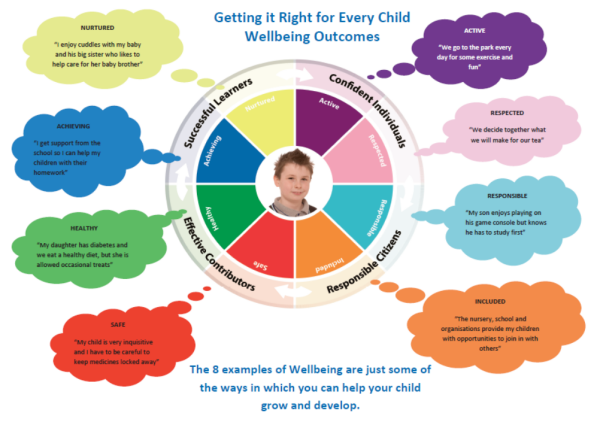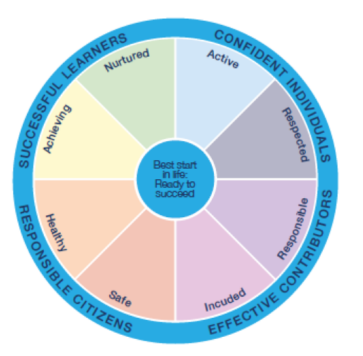Mental Health & Wellbeing of Children and Families

At Bassingbourn Community Primary School, we understand the need for everyone in our school to lead healthy and happy lifestyles. We are committed to the mental, physical and emotional health and wellbeing of our children and staff and we know it helps them to do their best and build upon their achievements.
We actively promote physical and emotional health and equip our pupils with the understanding and skills they need to make informed decisions about their health, both now and in the future. As such, our pupils are eager enthusiasts for healthy living and wellbeing.
By championing healthy eating, healthy lifestyles and emotional and mental health and wellbeing, we want to continue to raise standards and improve levels of pupil achievement.
Please click on the topics below for more information about how we promote and support our pupils, parents and staff.
If you have any questions, concerns or worries about this topic please contact our Designated Mental Health and Wellbeing Lead on our main office number 01763 242460.
To help make sure everyone –children, young people, parents, and the services that support them – has a common understanding of what wellbeing means, we describe it in terms of eight indicators.

- We have a designated Mental Health and Well Being Lead in school that is responsible for promoting wellbeing for our staff and pupils.
- We have a designated trained nurture Teaching Assistant Vicky Green who delivers nurture groups for pupils, such as small group ‘time to talk’ social skills work, resilience skills, 'its good to be me' groups and 1:1 check in with pupils in liaison with the SENCo (Special Needs & Disabilities Co-Ordinator).
- We have a school funded School Counselling service for high-prioritised need via Allyance Counselling Services.
- In each class and around the school corridors we have worry boxes for pupils to share their worries with a safe adult.
- We have nominated school council members in each class to represent their peers and gain feedback in class assemblies.
- We have buddies allocated to Year 2 pupils to support younger children in their transition across key stages.
- We have parent consultation meetings and extra half-termly meetings for pupils who need more regular meetings to support their needs.
- We have parent forum meetings for parents to attend and share their concerns and worries.
- We have email addresses for all teaching staff so parents can email concerns or worries.
- We have home/school communication books for pupil’s who require more regular updates.
- We have move up days, extra transition sessions and meet the teacher sessions for when a pupil is finding a class move difficult.
- We have new pupil welcome introduction pack and an allocated buddy for all new pupils.
- We have a lunchtime drop ins for pupils to be able to chat/share their worries with an adult.
- We have key Stage 2 children as playleaders to support younger Key Stage 1 children in positive play.
- We have a range of physical lunchtime clubs and quieter lunchtime clubs to promote mental health and wellbeing and support for pupils who find busy lunchtimes stressful.
- We have mental health and wellbeing regular trained staff team in order to support pupils with their needs.
We have positive behaviour systems in place to promote positive social behaviour. - We have mental health and wellbeing assemblies to promote resilience and self-management.
- We have a PSHE curriculum that help students to build important life skills, such as learning to learn, habits of mind and the growth mindset.
- Our ethos is to promote supporting the development of skills and character traits such as self-management, compassion and teamwork.
- We have a school funded employee schools assistant counselling service for all staff.
- We have a Mental health and Wellbeing policy for our school which is regularly updated.
You can:
- Go to your GP as a first port of call as they are a useful place to gain medical support and signposting of local services.
- Talk to your child’s class teacher or teaching assistant about your child's needs or your concerns.
- Talk to SENDIASS (formerly Parent Partnership Service or PPS) offers impartial information, advice and support to parents/carers of children and young people with special educational needs and/or a disability and children and young people themselves (up to the age of 25). Tel: 01223 699214.
- Talk to Family Support Worker - Can visit the home and support the family with needs at home. Sackville House, Sackville Way, Great Cambourne, CB23 6HL. Tel: 01954 286012.
- Talk to a School Nurse - Contact the school office for our school nurse duty desk 0300 029 5050 Email: ccs.cambs.hcp.schoolnursingdutydesk@nhs.net.
- Talk to the Emotional Health and Wellbeing service NHS. If you are a parent/carer concerned about your child or young person and believe the EHWS may be a help to your family, please do speak to your school and ask them to contact us directly: tel: 0300 555 50 60 or email: ccs.ehw@nhs.net.
Support is available from:
- The Samaritans: 116 123.
- Childline: 0800 1111.
- The Young Person aged 11-19 can contact a School Nurse on ChatHealth 07480635443.
Services with websites:
The Cambridgeshire and Peterborough Health Visiting and School Nursing Services are part of the 0-19 Healthy Child Programme. If you need help Call 0300 029 50 50 or Text 07520 649 887:
Cambridgeshire and Peterborough Healthy Child Programme
Kooth online counselling and emotional wellbeing platform:
Kooth - your online mental wellbeing community
'Keep your head' brings together good reliable up to date information on mental health and well-being for children and young people, parents/carers and professionals:
YOUnited offers help to children and young people with their emotional wellbeing and mental health registered with a GP in Cambridgeshire and Peterborough:
You can talk to Relate Counselling Service:
Young Minds Parents Helpline, Webchat and Email Service is available to offer advice to anyone worried about a child or young person under 25. You may have questions about a child’s behaviour, emotional well-being, or mental health condition. You may have a child who's already been admitted to CAMHS and have questions about their treatment or want to know what to say to your GP when you visit them. Call 0808 802 5544 from 9:30am - 4pm, Monday - Friday or visit the website:
Young Minds Parents Helpline, Webchat and Email Service
A full list of local services, support groups and parent groups can be found in:
The provision that children and young people (0-25 years) and their families can reasonably expect from:
- The Local Authority including SEND services, Locality Teams and Social Care
- Health including Cambridgeshire Community Services (CCS)
- Educational settings including schools and Early Years, Colleges and further Education
- Voluntary and Community Services including mediation services
You can find the Local Offer and lots of information about SEND at:
- Make sure the class teacher is aware of your child's needs and your concerns via Parent Consultation Evenings, making an appointment with the teacher via the school office or email your child’s teacher.
- Use local services for support see the local offer and websites above.
- Support your child by improving your awareness by downloading a leaflet. There are some useful leaflets and reading material below that can help with a range of common issues:
BCPS Mental Health and Wellbeing Policy
BCPS Mental Health and Wellbeing Leaflet
Public Health England How Healthy Behaviour Supports Children's Wellbeing
Mental Health Parent Leaflet Anna Freud Centre
The Anxious Child Booklet for Parents
Depression Guidance for Young People
You need to know guide for parents
10 key areas to happier living poster
Supporting Transgender young people
Mindfulness Booklet A brief guide
Supporting children and young people with worries about COVID-19
Mental Health and Wellbeing Support
Schools Information Pack - Bereavement
Young Minds Publications offers information on a variety of mental health issues from school problems to mental illness in families.
Young Minds Parents Guide To Support A-Z gives you advice on how to help your child with specific mental health conditions, and life events which might be negatively affecting their wellbeing. They also show you where you can get help.

